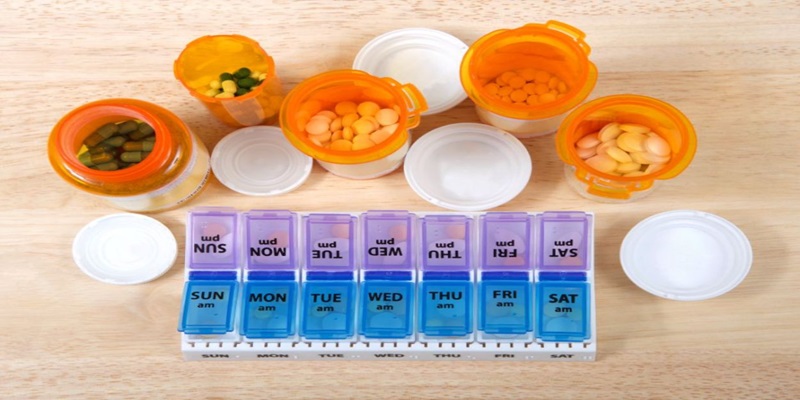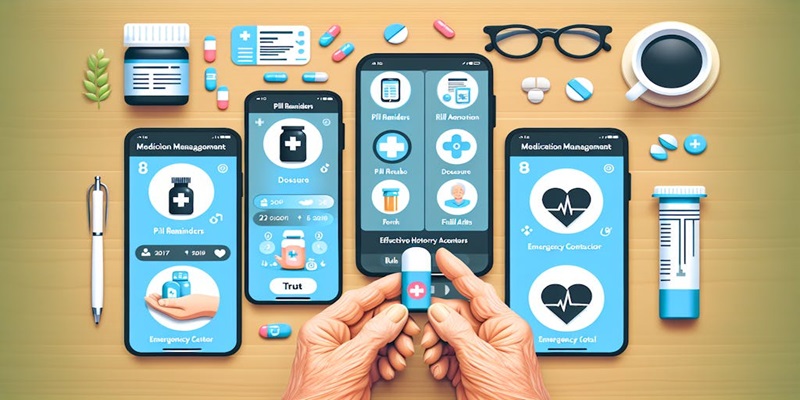Optimizing Medication Use for Senior Health and Wellbeing
As you age, proper drug care is increasingly essential in keeping you healthy and living life your way. With age, prescription medication is a high likelihood, and hence, effective drug care techniques become a necessity. Perhaps remembering when to take medicines, dealing with tablets, or becoming familiar with drug interactions becomes challenging for you. Worry not, for numerous senior-friend options can help you effectively manage your medication schedule.
Effective Communication with Healthcare Providers

Preparing for Medical Consultation
Before visiting your doctor, sit down and ready yourself. Write down your current drugs, including over-the-counter medications and supplements. Include any experienced side effects and concerns. Write down questions about your medicines or overall health. Doing that maximizes your consultation session.
Asking the Right Questions
During your consultation session, don't hesitate to ask questions. Inquire about the purpose of each drug, any potential side effects, and alternatives. Ask about dosing, dosing times, and food intake with drugs. If you have concerns about cost, request options for generics or patient assistance programs. Clear communication averts mistakes and assists in your overall care.
Following Through After Medical Consults
Following a consultation session, review your notes and new information. In case of doubt, contact your doctor's office for a response. Ask a family member or caregiver for accompaniment for a consultation session. They can recall important information and have additional questions. Frequent follow-throughs make your medication schedule work and continue to adapt to your changing needs.
Organizing and Tracking Medication Regimens

Creating a Medication Schedule
Keeping track of a variety of drugs can become challenging for seniors. Start with a master medication schedule. Write down all prescription medications, over-the-counter drugs, and supplements. Include dosages, times, and specific instructions (e.g., "take with food"). In the bold, readable script, it will be easier to read for seniors. Color-code drugs for morning, noon, and evening, for example, and specific reasons, such as for blood sugar, high blood pressure, etc., to make it easier to streamline routine.
Utilizing Pill Organizations and Reminders
Purchase a pill planner with days of the week and several dosages a day in individual spaces. It is a visual reminder for seniors to actually use medication. Use with a reliable reminder system. Set an alarm on a smartphone, use a medication reminder app, or purchase a pill device with an alarm function. All of these can significantly reduce the danger of missed dosages and double dosing.
Safe Keeping of Correct Records
Maintain an in-depth medication log in order to monitor compliance and any side effects incurred. Leave space for recording new symptoms or altered medical conditions. It will be most beneficial during doctor appointments and can detect potential complications with drugs or the ineffectiveness of drugs. Have an electronic medical app or a simple notebook, and use whatever is most convenient for senior use. Update each record regularly, assuring accuracy and current information.
Senior-Friendly Medication Management Tools

Pill Organizations and Dispensers
Pill calendars are beneficial tools for seniors taking a lot of drugs. Compartmented files sort drugs out by day and time, reducing confusion and the chance of omission of dosages. High-tech electronic dispensers go a little further, sending a reminder when dosages must become part of the routine and dispensing dosages in the correct dosages automatically.
Medication Reminder Apps
Smartphone apps can become helpful assistants with medication management. Apps remind seniors to take medications, monitor dosages, and even notify them of potential drug interactions. Most have simple fonts and interfaces and, therefore, can even be usable for technology-smart seniors.
Verbal Prescription Labels
For seniors with impaired eyes, verbal prescription labels can be a significant improvement. Audio labels are attached to medication packages and provide key information such as medication name, dose, and instruction. With such technology, seniors can use drugs accurately, even when having difficulty reading small fonts.
Recording Diaries for Medication
A practical yet simple device is a medication record diary. These diaries allow seniors or caregivers to record dosages taken, side effects experienced, and questions for medical professionals in pen and paper form. For seniors who prefer having actual forms in hand, physical diaries are the best option.
Optimizing Medication for Overall Well-being
Optimum medication use is critical for seniors' overall well-being. By following a few simple tips, older adults can maximize medication effectiveness with less danger.
Establish a Medication Routine
A scheduled routine for taking drugs helps them not miss dosages and take them at the wrong times. Adopt a pill case, smartphone app, or printed schedule to follow a routine. Place drugs in a prominent, accessible location and use them as a visible reminder.
Interact with Medical Experts
Adequate consultation with medical professionals and a pharmacist is essential. Report any side effects, concerns, or problems you experience with your current medication routine. Don't hesitate to seek consultation with them about correct dosing, timing, and compatibility with drugs. Medical professionals can modify your routine for best suitability at any given time.
Track and Monitor
Keep a record of how medications impact your symptoms and overall well-being. Document any shifts in mood, energy, and physical well-being. Having access to this information at doctor's appointments can allow you to refine your treatment plan. Use a health diary and smartphone app, for example, to record and share information with your healthcare providers easily.
Better Health Starts with Smart Medication Management
By following these senior citizen-friendly strategies, you can manage your medication routine and become a healthy, happy older age, in fact, a healthy, happy individual for years to come. Don't forget to speak with your medical professionals, organize your meds, and use technology when it is functional. Please don't pass up an opportunity to seek a little extra guidance when you need it, and maintain an active role in your prescription routine.
With keen observation of your medication routine, the danger of adverse effects can be lowered, and you can maximize the benefit of your therapies. By taking these actions, you're putting your long-term well-being and days filled with happiness and activity in your future years in your hands.





